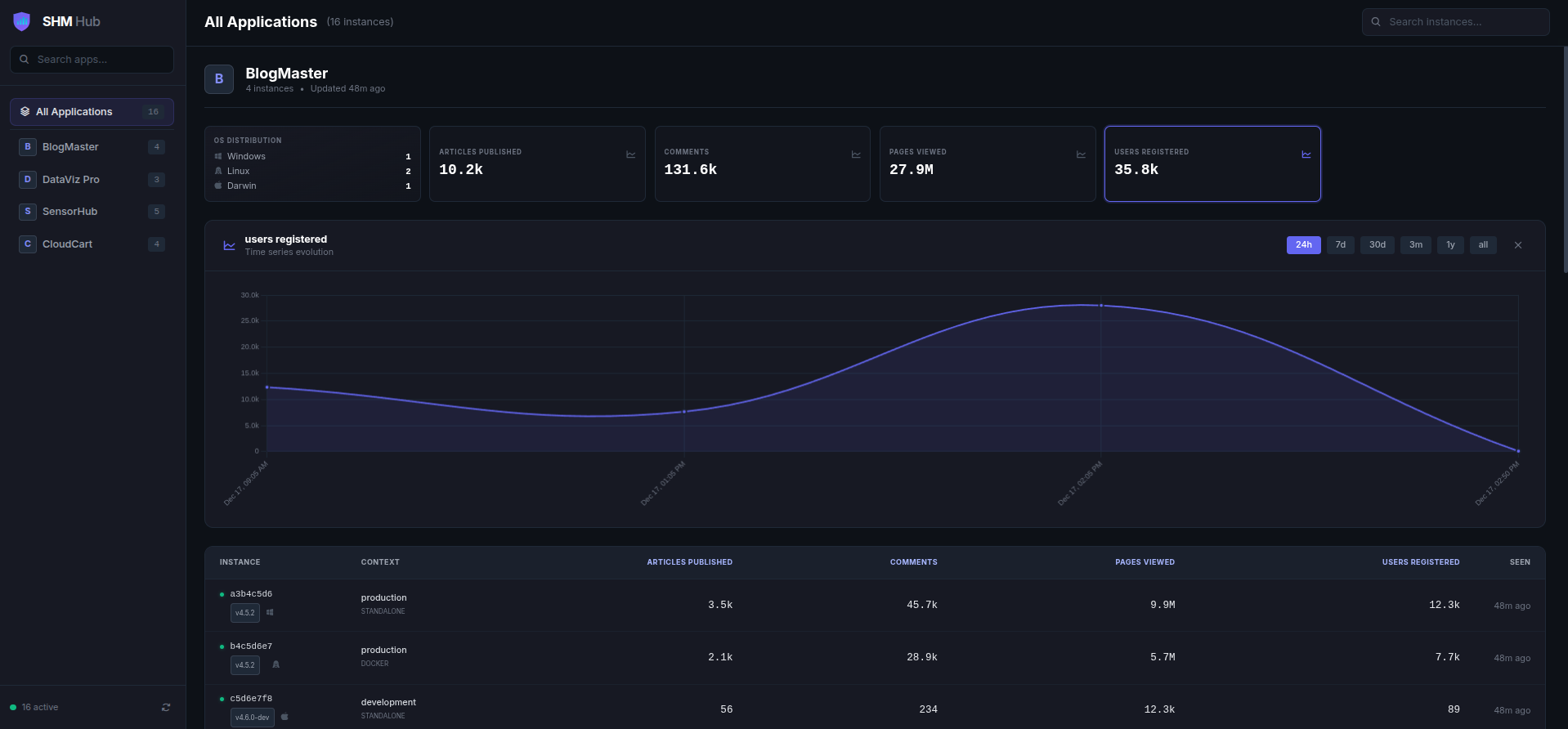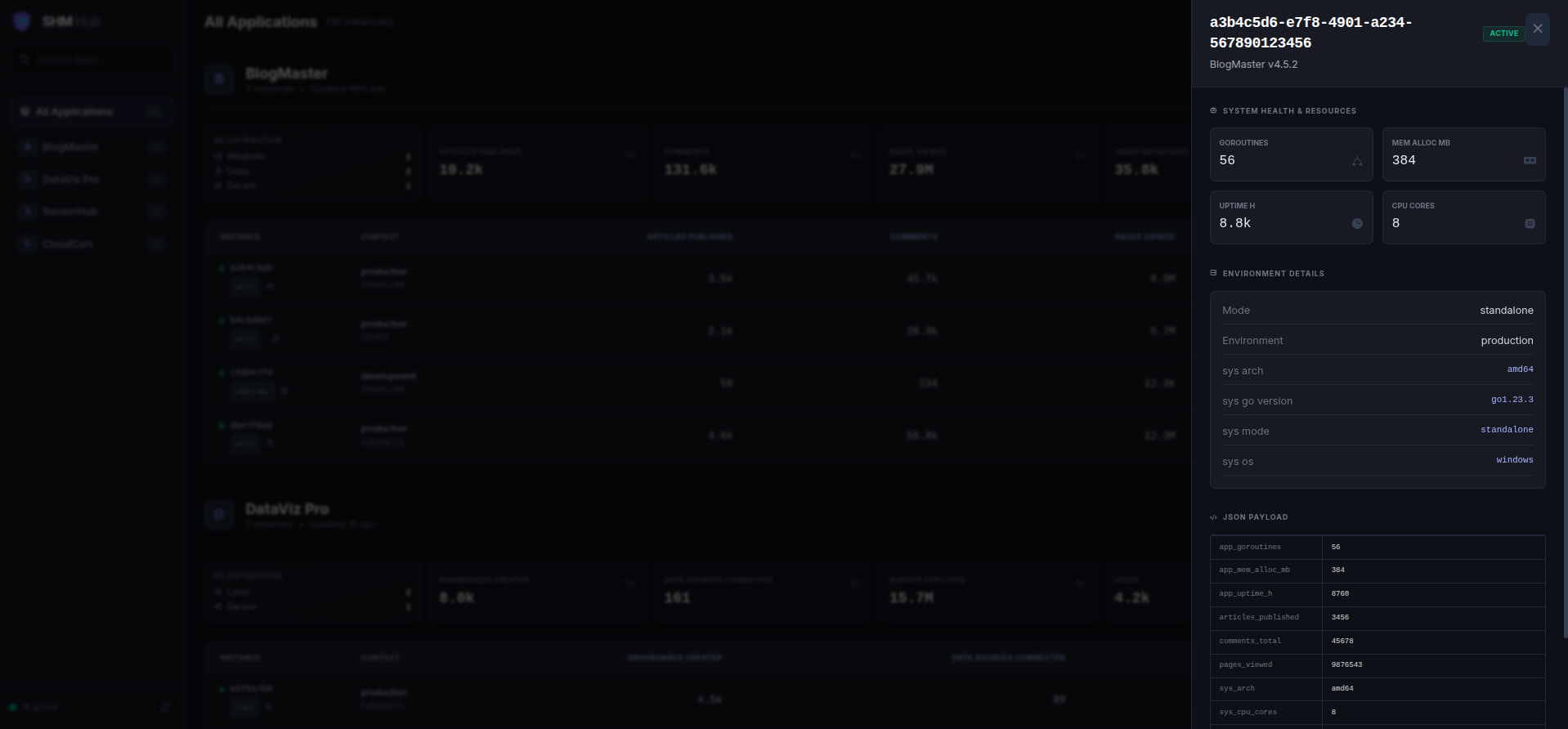SHM : des métriques d’usage pour applications self-hosted… sans espionner les utilisateurs
Quand on développe et distribue des applications open-source auto-hébergées, il y a une question très simple à laquelle il est presque impossible de répondre :
Combien d’instances actives de mon application sont réellement utilisées ?

C’est exactement le problème que j’ai rencontré avec Ackify, une application open-source de preuve de lecture de documents (politiques internes, procédures, formations, etc.), déployée en self-hosted par ses utilisateurs - sans que j'ai le moindre contrôle dessus.
Pas de SaaS, pas de compte centralisé, pas de tracking utilisateur.
Résultat : zéro visibilité.
👉 Combien d’instances Ackify tournent vraiment ?
👉 Quelles versions sont encore actives ?
👉 Quelles fonctionnalités sont utilisées (ou pas) ?
C’est pour répondre à ce besoin très concret que j’ai créé SHM – Self-Hosted Metrics.
- lien nᵒ 1 : Self Hosted Metrics (SHM)
- lien nᵒ 2 : Ackify
SHM, c’est quoi ?
SHM est un serveur de télémétrie privacy-first, conçu spécifiquement pour les applications self-hosted open-source.
L’idée est simple :
- chaque instance auto-hébergée envoie périodiquement un snapshot de métriques agrégées
- aucune donnée utilisateur
- aucun événement individuel
- aucun tracking comportemental
Juste ce qu’il faut pour comprendre l’usage réel d’un logiciel déployé “dans la nature”.
Un point important : SHM est agnostique
Contrairement à beaucoup d’outils existants, SHM n’impose aucun schéma.
Tu envoies :
{
"documents_created": 123,
"active_users": 42,
"webhooks_sent": 9
}➡️ le dashboard s’adapte automatiquement :
- nouvelles cartes KPI
- nouvelles colonnes
- graphiques générés dynamiquement
Aucun frontend à recompiler, aucune migration à écrire.


Un petit mot sur Ackify
Ackify est l’application qui a déclenché tout ça :
- open-source
- self-hosted
- preuve de lecture avec signature cryptographique
- alternative légère à DocuSign pour des usages internes
SHM est désormais utilisé pour répondre à des questions très simples :
- combien d’instances actives ?
- combien de documents créés ?
- combien de signatures générées ?
Projet open-source
- Code source : https://github.com/btouchard/shm
- Déploiement simple en
docker compose - SDK Go (et Node.js) pour intégrer la collecte facilement
Le projet est encore très jeune (MVP), mais fonctionnel et déjà utilisé en conditions réelles.
Les retours, critiques et idées sont évidemment bienvenus 🙂
Stack technique (sobre et assumée)
- Backend : Go (binaire unique, léger)
- Stockage : PostgreSQL (JSONB)
- Déploiement : Docker
- Licence : AGPLv3 (SDK en MIT)
- Auth des instances : Ed25519 (clé générée localement, signature des snapshots)
Chaque instance :
- génère une identité cryptographique locale
- s’enregistre une seule fois
- signe chaque envoi de métriques ➡️ impossible de spoof une instance existante.
Et côté vie privée ?
C’était non négociable.
SHM :
- ne collecte aucune donnée personnelle
- ne collecte pas les IP (hors reverse-proxy)
- ne collecte ni hostname, ni username
- fonctionne sur des compteurs agrégés uniquement
C’est au mainteneur du logiciel de décider quelles métriques exposer, et à l’utilisateur final de pouvoir désactiver la télémétrie.
Commentaires : voir le flux Atom ouvrir dans le navigateur
 Canonical confirms Ubuntu 26.04 LTS will ship with Linux kernel 6.20 (7.0) in April, bringing latest hardware support and performance improvements to users.
Canonical confirms Ubuntu 26.04 LTS will ship with Linux kernel 6.20 (7.0) in April, bringing latest hardware support and performance improvements to users. Kdenlive 25.12 adds native vertical video support, a new UI docking system, and duration-based markers. See what’s new in the latest KDE video editor update.
Kdenlive 25.12 adds native vertical video support, a new UI docking system, and duration-based markers. See what’s new in the latest KDE video editor update.